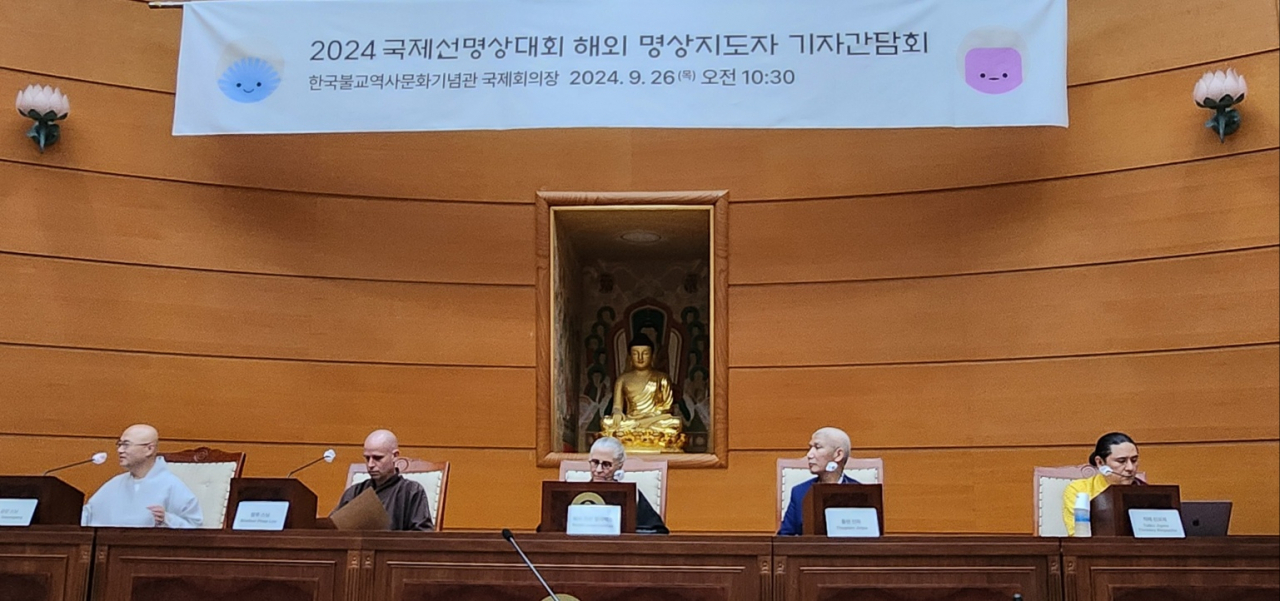 |
A press conference of foreign seon practitioners is held at a memorial hall near Jogyesa in Seoul on Thursday. (Choi Si-young/The Korea Herald) |
Buddhist seon meditation practitioners said internalizing Buddhist teachings could help the world counter a polycrisis -- a web of multiple global threats to the safety and security of peoples and nations -- at a press conference Thursday in Seoul.
The conference took place a day before the five-day Seon Meditation Summit kicks off in Seoul, as the Jogye Order of Korean Buddhism looks to promote the kind of meditation backed by the largest Buddhist sect in the country.
“Both the Buddhist view and the practice of Buddhism have such a great foundation for addressing the suffering in the world today. I feel that we have a moral responsibility to open the path forward, particularly for young people,” said Abbot Roshi Joan Halifax, founder and head teacher of the US-based Upaya Zen Center.
The Ven. Tulku Jigme Thrinley Rinpoche, spiritual director and co-founder of the US-based Palmo Center for Peace & Education, called for finding ways to “handle difficulties with deeper acceptance, understanding and compassion.”
“As I’m sure many of you are already familiar with the teaching of the Buddha, the root cause of suffering is actually this untrained mind,” Rinpoche said.
Modern breakthroughs in science and technology have advanced the “physical well-being” of many while education has heavily relied on fostering “cognitive development,” according to Rinpoche.
Efforts for building character and tending to emotional health in the meantime have trailed far behind, he added, saying, “Let them (difficulties) go. It’s amazing if you come to realize this truth.”
Thupten Jinpa, a Tibetan Buddhist scholar, acknowledged that Buddhist teachings might not outright resolve the numerous global crises. But internalizing Buddhist teachings at least prevents individuals from becoming a victim of hatred, Jinpa said.
“And once you become a victim of hatred, you then continue to perpetuate the cycle,” he added, referring to the intensifying Middle East conflict prompted by the Israel-Hamas war.
Meditation does benefit society, according to the scholar.
“You need a more comprehensive approach, which is meditation as well as some transformation of the way in which you see the world. Your perception of the world has to change,” Jinpa said of finding common ground as part of crisis resolution.







